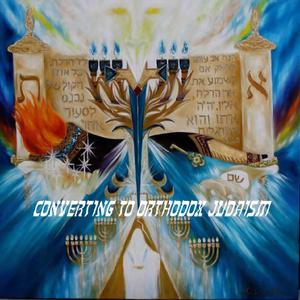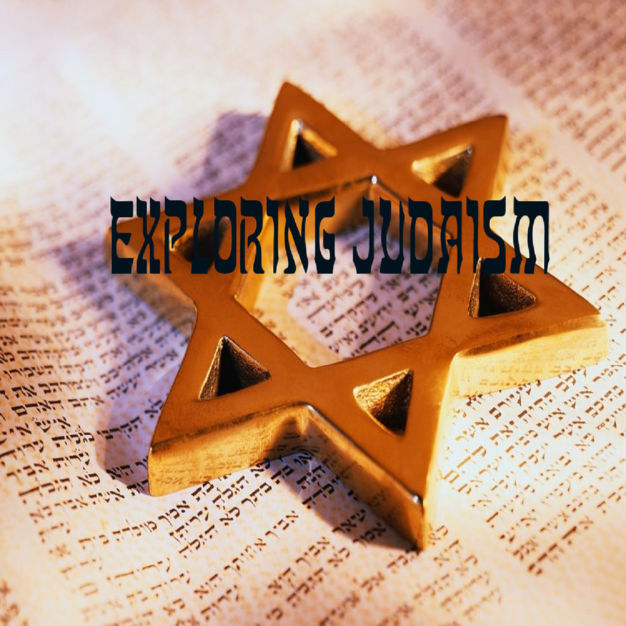
Authentic, Compassionate Judaism for the Thinking Person
Rabbi Nadav Caine
In addition to explicating individual chapters of the Torah using traditional sources to apply directly to our daily lives, Rabbi Caine or "Rav Nadav" (as he is affectionately known) teaches on topics such as The Soul, Mysticism, Theology, Ethics, Comparative Religion, Science & Religion, and Psychology of Religion. Rav Nadav studied religion and philosophy at Princeton, Harvard, and Stanford Universities. An award winning teacher and Conservative rabbi, he now serves as a congregational rabbi in San Diego.
- 14 minutes 54 secondsAmalekites, Gaza and the End of Megillat Esther on Purim
As Purim became a holiday of tremendous festivities and lightheartedness, the Rabbis knew that the end of the Megillah in Chapter 9 has a dubious quality, that of a massacre on Haman's people. Is this a happy ending, a desirable ending, that of massacre, that of Jews finally (and really for its time, only possible in the Jewish imagination but not in practice) having power? So the Rabbis created a requirement that on the Shabbat morning before Purim, one must read about the Amalekites. In this podcast, I present traditional commentary and observations given the context of the fighting in Gaza.
24 March 2024, 6:23 pm - 9 minutes 11 secondsThe 19th Century Reform Rabbi Who Changed Physics
The most influential rabbi you've never heard of? Based on an episode of the RadioLab podcast ("Relative Genius") and a biography in the Jewish Encyclopedia -- https://www.jewishencyclopedia.com/articles/12611-rebenstein-aaron -- I tell you about the extraordinary Rabbi Aaron David Bernstein who likely accomplished more in his lifetime by himself than your average Ivy League university!
19 February 2024, 3:05 am - 16 minutes 10 secondsThe Israelites Left Egypt Armed: Gender & Chauvinism Preceding October 7
In the second verse of Parashat Beshalach (the flight from Egypt and the crossing of the Sea of Reeds), the Torah states that the Israelites fled fully armed. I explore the traditional commentaries on why, and connect this to the haftarah (story of Deborah and Yael) and to the intelligence failures in Israel caused by male chauvinism.
30 January 2024, 3:44 pm - 13 minutes 46 secondsWho Gets to Be a Spokesperson for Israel? The Soft of Heart and Slow of Speech
The focus of the American and international conversation about the Hamas attack and its aftermath has been "Ceasefire or No Ceasefire" by which people mean (since there was a ceasefire prior to Hamas's breaking it) whether Israel should cease its counter offensive due to civilian casualties. Who gets to be a spokesperson for Israel at this time in our communities and in the world? Interestingly, the Torah portions of Vaera and Bo --where we are when the war stands at 100 days-- raises the classic ethical question: Why did God prosecute a full 10 plagues upon the Egyptian population when it seemed like Pharoah might yield earlier? Why does God intervene --it seems-- in the hardening of Pharoah's heart so that the full span of destruction continues? In this Dvar Torah, I note the context of this Torah discussion. This is the first time Am Yisrael --the nation of Israel-- ever has a spokesperson! That phrase, that this kinship-related tribe of Hebrews, or Bnei Yisrael, are actually a Nation, is spoken first in the Bible by Pharaoh. And God appoints Moshe as the spokesperson, and Moshe turns it down, so Aaron becomes a spokesperson. Why turn it down? Who today gets to speak for the nation when the antisemite demands a response? I note two important textual clues. First, Moshe is called by God to be a spokesperson for the "Sh'fatim Gedolom" --the "Great Judgments upon Egypt" (the plagues)-- and replies that his "S'fatayim" (lips) aren't up to it. (Though one is tav and the other tet, the words look strikingly alike in the Torah!) Midrashically, the trouble is not a speech impediment, it is an impediment to explaining the plagues to the hostile audience! When God doesn't accept that excuse, Moshe says he has "hardness of mouth" and "hardness of tongue/speech" -- the same word "hardness" that describes Pharaoh's heart! This surely tells us a lot of the deep meaning connecting the two.
15 January 2024, 9:38 pm - 16 minutes 56 secondsTikkun Olam and Redeeming the Hostages
As a Dvar Torah for Vayigash (Joseph's revealing himself to his brothers following Judah's speech), I explore the mitzvah of redeeming our captives and the limitations on the law "for the sake of Tikkun Olam."
The conversation among American Jews about Gaza centers around "Ceasefire or No Ceasefire? What kind of Jew am I if I don't support stopping the bombing?" while the conversation in Israel is "Exchange terrorists for hostages? What kind of Jew am I if I don't bring my sister/brother home at any cost to an Israel bereaved beyond measure?" In an amazing synchronicity with the Torah reading, the entire drama of all the parashiyot of the Joseph saga lead up to whether Judah will say for his brother Benjamin what he wouldn't say for Joseph, that he will do anything rather than fail to bring his brother home to his bereft father, an Israel who cannot bear further trauma. What kind of Judah/Jew am I if I don't bring my brother home to my heartbroken Israel? And there is Israel (Jacob), saying he will enter Sheol (the underworld) if he is forced to endure another son never coming home.
The redemption of Jewish captives is one of the hightest mitzvot in Judaism. Why? And why does the Talmud and Jewish Legal codes say that one only refrains from doing so for the sake of Tikkun Olam?
23 December 2023, 10:53 pm - 9 minutes 23 secondsHalakhah and Aggadah: The Ten Stories We Tell PART TWO
PART TWO of this Yom Kippur 2023 sermon, in which I share the result of my personal and rabbi experiences of the last 15 years: that the longer we live, the shorter our eulogy becomes; that life (like scripture) is a combination of halakhah (direct description of human behavior) and aggadah (our stories in which God is an invisible character); that the main point of Yom Kippur is to learn how to retell our stories so that the way God has been communicating to us through our experiences becomes center stage, with the intimation explicit, the aspiration articulated, the perpective holy, so we live wearing the garments of holiness, with the perspective of shrouds and Unetaneh Tokef, as God writes the books of Avinu Malkeinu from the way we are telling our stories.
1 December 2023, 10:03 pm - 16 minutes 34 secondsHalakhah and Aggadah: The Ten Stories We Tell PART ONE
In this Yom Kippur 2023 sermon, I share the result of my personal and rabbi experiences of the last 15 years: that the longer we live, the shorter our eulogy becomes; that life (like scripture) is a combination of halakhah (direct description of action) and aggadah (our stories in which God is an invisible character); that the main point of Yom Kippur is to learn how to retell our stories so that the way God has been communicating to us through our experiences becomes center stage, the intimations explicit, the aspirations articulated, the perpective holy, so we live wearing the garments of holiness, with the perspective of shrouds and Unetaneh Tokef, as God writes the books of Avinu Malkeinu from the way we are telling our stories.
23 November 2023, 5:14 pm - 14 minutes 16 secondsIs There a Fear of God In This Place? Our Different Experiences of the Israel Gaza Conflict
Using the stories of Avraham, Sarah, and Hagar in Vayera, I voice what it's like to have utterly different experiences of the Gaza conflict with our coworkers, friends, and family members, some of whom seem to embody Dara Horn's prophecy that the world loves to pity the dead Jews of the past while finding the living Jews of today an inconvenience, an Other, and deserving of sanctimonious antisemitism.
6 November 2023, 5:04 pm - 18 minutes 2 secondsThe Commandment of Shevut: How Do We Handle its Inherent Subjectivity?
In Deuteronomy, we are commanded to keep Shabbat as restfulness. Many are unaware that this does not just involve practicing the Shabbat observances and restrictions --Biblical and Rabbinic-- but the highly unusual special-to-itself halakhic category of "Shevut," usually translated as proactively keeping "the spirit of Shabbat." The category of observing "the spirit of Shabbat" is inherently subjective, and it can vary from person to person. For one person, reading a newspaper on Shabbat is a violation of the spirit of Shabbat, while for another it enhances the spirit of Shabbat. Going someplace for Shabbat dinner or lunch might enhance the spirit for one, but for another take away from the Shabbat spirit of the sanctuary of home. The issue has come to the fore with the electric car. Since an EV has no fire within in, and electricity meets none of the halakhic prohibitions, its use on Shabbat largely comes down the category of shevut. This has produces two approved Responsa of the Conservative Movement, which are largely hostile to one another. In one, anybody considering the use of an EV on Shabbat should be considered in violation of the law, and shevut should not be considered subjective, but actually somehow defined by a small group of rabbinic authorities others in perpetuity! (It's like saying, How dare you read your psychology textbook on Shabbat! That's homework! Even though you are allowed to read on Shabbat and you love psychology.) The other group decries this attempt to take over and monopolize our one subjective category. I explore the issues.
16 October 2023, 4:33 am - 24 minutes 59 secondsThe Kol Nidrei Ritual: Stepping into Your Future Self
Drawing on the traditional meaning of the Kol Nidrei --"All Vows"-- prayer, plus the Mishnah and Talmudic tractates on the Nidrei (Nedarim: Vows), plus the philosophy of Ritual Drama and the recent psychological studies about Future Selves, Rabbi Caine constructs a vision of what the Yom Kippur experience is supposed to be, a drama of our envisioning our future selves and playing those parts through Tefillah, Tsedakah and Teshuvah that connect to the Nidrei, our New Year's Resolutions.
26 September 2023, 4:24 pm - 19 minutes 52 secondsHineni Resolutions: I’m Ready but Are They?
My Second Day 5784/2023 Rosh Hashanah Sermon explores the New Year's resolution ("neder" as in "Kol Nidrei") in Biblical, Talmudic, and Contemporary Jewish spirituality. What is the one resolution in your life that is "If not now, when?" and what can the Talmud tell us about how to be successful at it?
24 September 2023, 8:07 pm - More Episodes? Get the App
Your feedback is valuable to us. Should you encounter any bugs, glitches, lack of functionality or other problems, please email us on [email protected] or join Moon.FM Telegram Group where you can talk directly to the dev team who are happy to answer any queries.
 Madlik Podcast – Torah Thoughts on Judaism From a Post-Orthodox Jew
Madlik Podcast – Torah Thoughts on Judaism From a Post-Orthodox Jew
 Conversion To Orthodox Judaism
Conversion To Orthodox Judaism
 Exploring Judaism with Rabbi Michael Skobac
Exploring Judaism with Rabbi Michael Skobac
 College of Judaism
College of Judaism
 Judaism
Judaism
 Adventures in Urban Judaism
Adventures in Urban Judaism